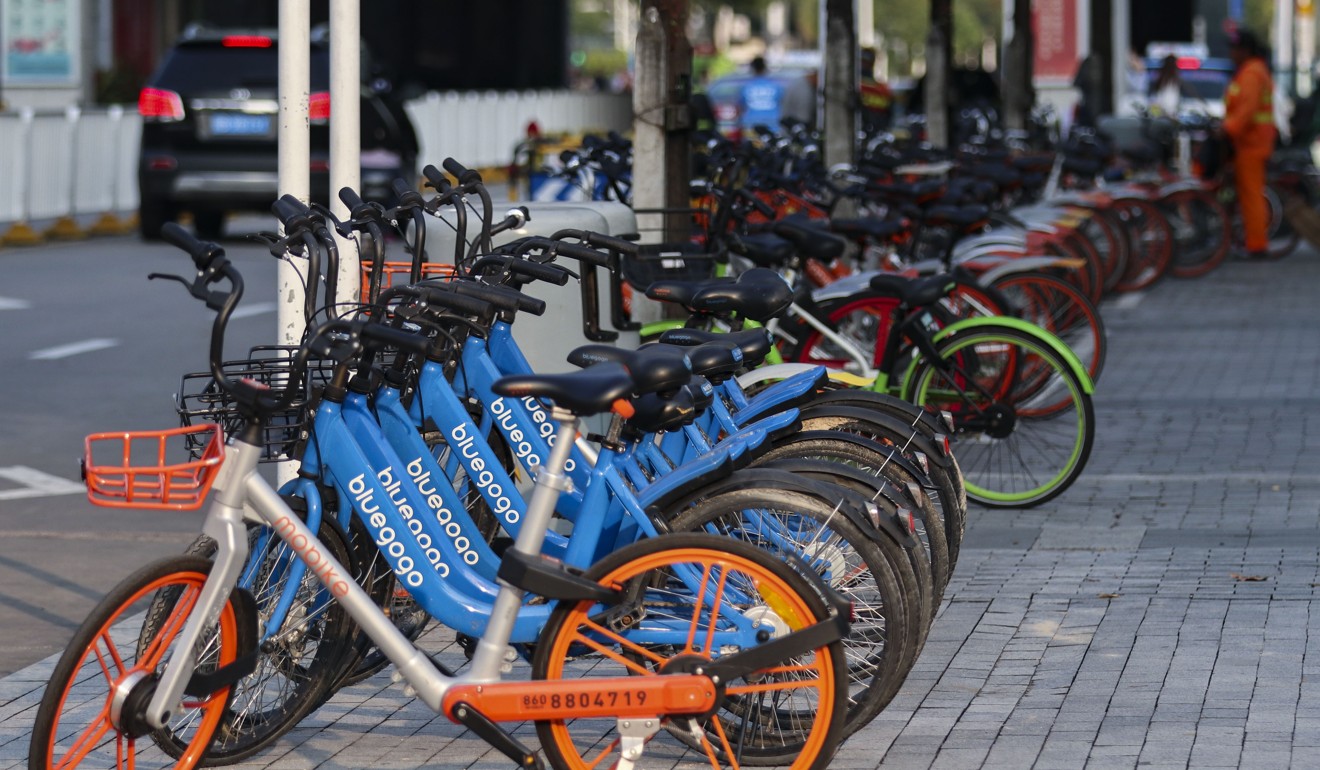
Chinese prosecutors tell bike-sharing firms: clean up your game or we will act
Shenzhen officials warn the city’s main start-ups they must do more to tackle the problems that have plagued the industry
Bike-sharing businesses in one of China’s major tech hubs have been told to tackle the wider problems the services are causing, with prosecutors warning they will be keeping a close watch on the industry.
The industry has boomed in the past couple of years in China, changing the commuting habits of millions of people. But there has also been a flood of complaints, from concerns about safety and congestion, to grumbles about illegally parked bikes blocking traffic and pathways, and the risk of customers losing their deposit if providers go bust.
On Thursday officials from the prosecution service in the southern city of Shenzhen along with members of the city’s municipal transport committee and urban management bureau summoned executives from the seven major local players – including Mobike and Ofo – to a meeting to discuss the issue, state-run news website Southcn.com reported.
Members of the local people’s congress were also required to send delegates to observe the meeting.
Officials told the executives their companies must stop neglecting the effect the industry was having on society, adding that they should also tackle excessive competition in the sector.
According to the report, it was the first time the procuratorate, the body responsible for criminal investigations and prosecutions, had become involved in the issue.
Prosecutors told them they were stepping up monitoring of the industry and would be collecting information about any behaviour that went against the public interest, such as blocking traffic, illegal parking and actions that put customers’ money at risk.
Since August, prosecutors in Shenzhen’s Nanshan district have used various ways, including drones, to collect evidence of illegal behaviour in downtown areas, such as subway stations, tourist attractions and commercial areas.
Lin Xiong, deputy head of the city’s procuratorate, said the body would act to protect the public interest if the bike-sharing companies had a negative effect on society.
A delegate from Shenzhen’s people’s congress was quoted as saying: “The procuratorate supervises the public interest. When the public interest is harmed, the procuratorate will get involved and help solve the problems.”

The industry has boomed in recent years, becoming one of the prime examples of China’s shared economy.
Dozens of companies have developed bike-sharing apps in cities across the country, attracting US$2 billion in funding over the last 18 months and making the industry one of the most popular investments for private equity, venture capitalists and angel investors.
At the top of the heap are unicorns Mobike and Ofo, two Beijing-based companies each valued at more than US$1 billion in a field with many smaller competitors.
But the industry has been blamed for a host of problems as companies seek to expand rapidly to gain a bigger share of the market.
As of April, as many as 520,000 shared bikes were reportedly in service in Shenzhen alone and the figure reached 890,000 in August.
But the easy availability of bikes and the dockless system used has prompted frequent complaints that users are simply dumping the bikes indiscriminately, blocking paths and traffic and even obstructing ambulances at hospital entrances.
Safety concerns have also been raised because many primary and secondary school pupils have ready access to the bikes and are frequent users of them.

Various Chinese cities have brought in their own regulations to manage the sector, with many banning companies from putting more bikes on the streets or preventing new businesses from entering the market.
The industry’s fiercely competitive nature and rapid expansion means many companies have burned through a lot of cash in a short time.
This week the country’s third-largest bike-sharing start-up Bluegogo – which had 20 million registered users at its peak – announced that it was closing because it could not raise enough funds.
Its failure also highlighted another concern – the risk to customers’ money – after users complained that they were unable to get their deposits back.

